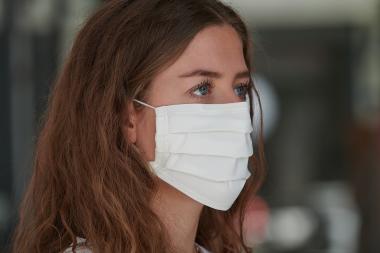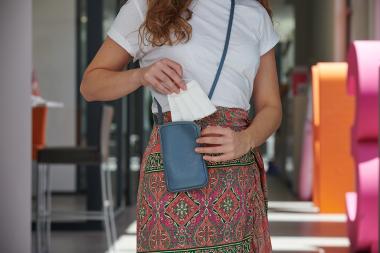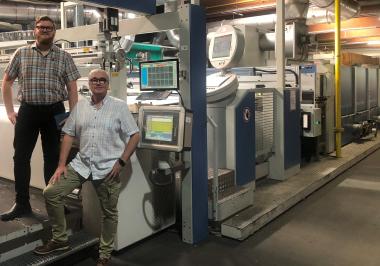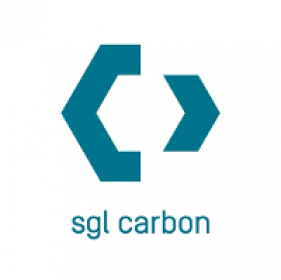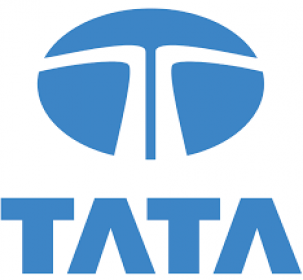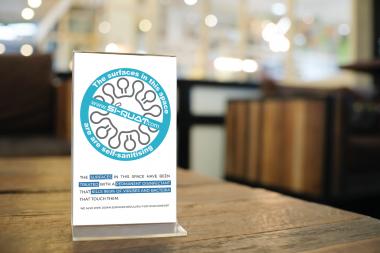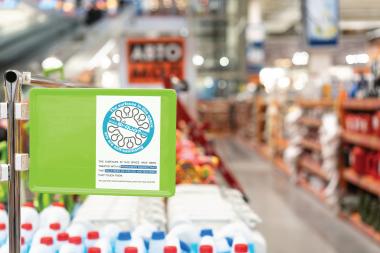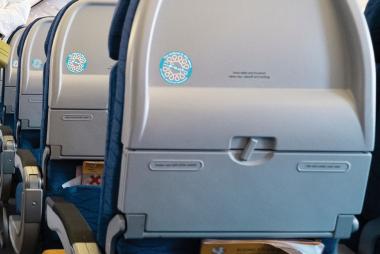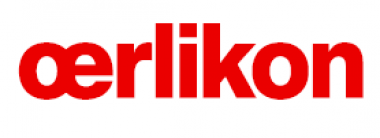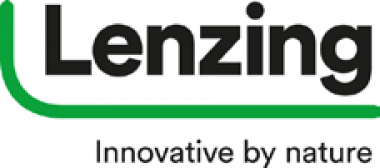Moti Fabrics (Pvt) Ltd. Moves to Digital Production with Mimaki Tiger
- Mimaki Tiger-1800B MkII Printers for Faster, High-Quality Textile Printing
Amsterdam - Mimaki Europe, a leading manufacturer of inkjet printers and cutting systems, announces today that Pakistani textile company, Moti Fabrics (Pvt) Ltd., is leveraging multiple Mimaki Tiger industrial textile printing units to take its business to the next level. As a result of on the outstanding performance and process optimisation delivered by the Mimaki digital printing equipment, the company has been able to adapt to changes in the textile industry and is now projected to reinforce its market position and expand its capabilities in high-quality textile production.
Headquartered in Faisalabad, Punjab province – the second largest textile hub in Pakistan –, Moti Fabrics (Pvt) Ltd. mainly serves the high fashion industry and uses its cutting-edge technology to print about 100,000 metres daily. Faced with recent challenges in the global textile market, management at Moti Fabrics (Pvt) Ltd. embarked on innovating the company’s business model, shifting from conventional to digital printing. In doing so, the company invested in Mimaki’s advanced industrial textile technology and installed three Mimaki Tiger-1800B MkII units. “We were – and still are – experiencing a massive transformation in the printing segment, with brands demanding high quality products delivered within short deadlines. This change in our customers’ requirements urged us to move to digital printing,” says Muhammad Asif, CEO at Moti Fabrics (Pvt) Ltd. “Our choice has already proved sound as our brand-new Tiger-1800B MkII printing systems have enabled us to cope with the high standards of the fashion industry in terms of both quality and delivery times. In addition, we have been able to gradually enhance our production processes in a cost-effective way.”
The Tiger-1800B MkII is Mimaki’s flagship industrial volume textile printer, available either in dye sublimation configuration for transfer printing or with reactive ink for direct-to-textile printing. Of the three Mimaki Tiger-1800B MkII solutions operating at Moti Fabrics (Pvt) Ltd., two are equipped with reactive inks, enabling the company to directly print onto natural fibres such as cotton and linen, as well as onto manufactured cellulose fibres, including rayon and nylon. The third Mimaki Tiger-1800B MkII features sublimation inks serves the ever-growing printed polyester market, allowing the company to strategically diversify its product portfolio.
“There are several features of the Tiger-1800B MkII that benefit our production and our business at large. The MAPS (Mimaki Advanced Pass System), just to name one, prevents banding and colour-shifting to deliver a higher standard of quality, while the NRS (Nozzle Recovery System) provides uninterrupted production, minimising downtime and ensuring superior results. The sticky belt system together with the large-size ink tanks (with a capacity of 10kg) and the high-performance software RIP TxLink3 are some of the other features that make these printers efficient, user-friendly and reliable,” says Asif.
Asif concludes, “Looking at the future, our aim is to set up a print department featuring only Mimaki’s technologies. We are already considering the next steps to make this possible, knowing that we can count on the support of Signtrade, Mimaki’s dealer in the region and our trustworthy partner.”
Moti Fabrics (Pvt) Ltd. was founded in 1992 by Muhammad Asif’s father Haji Muhammad Yousaf and his partner Haji Rasheed Ahmad. Established as a dyeing company, Moti Fabrics (Pvt) Ltd. was able to gradually diversify the business over the years to become an advanced textile printing specialist. Today, the company is an established provider to the high fashion industry in Pakistan and on an international level.
“The story of Moti Fabrics is incredibly inspiring. Belonging to a region with such rooted textile printing heritage, the company has been able to embrace a new, challenging business model in order to stay at pace with the changing demand from the textile industry and has succeeded,” comments Ronald van den Broek, General Sales Manager at Mimaki Europe. “Customers like Moti Fabrics make us proud as they demonstrate how our advanced Mimaki Tiger industrial textile series can be the enabling technology for those textile companies planning the shift from conventional to digital printing.”
EMEA, Mimaki Europe B.V
















